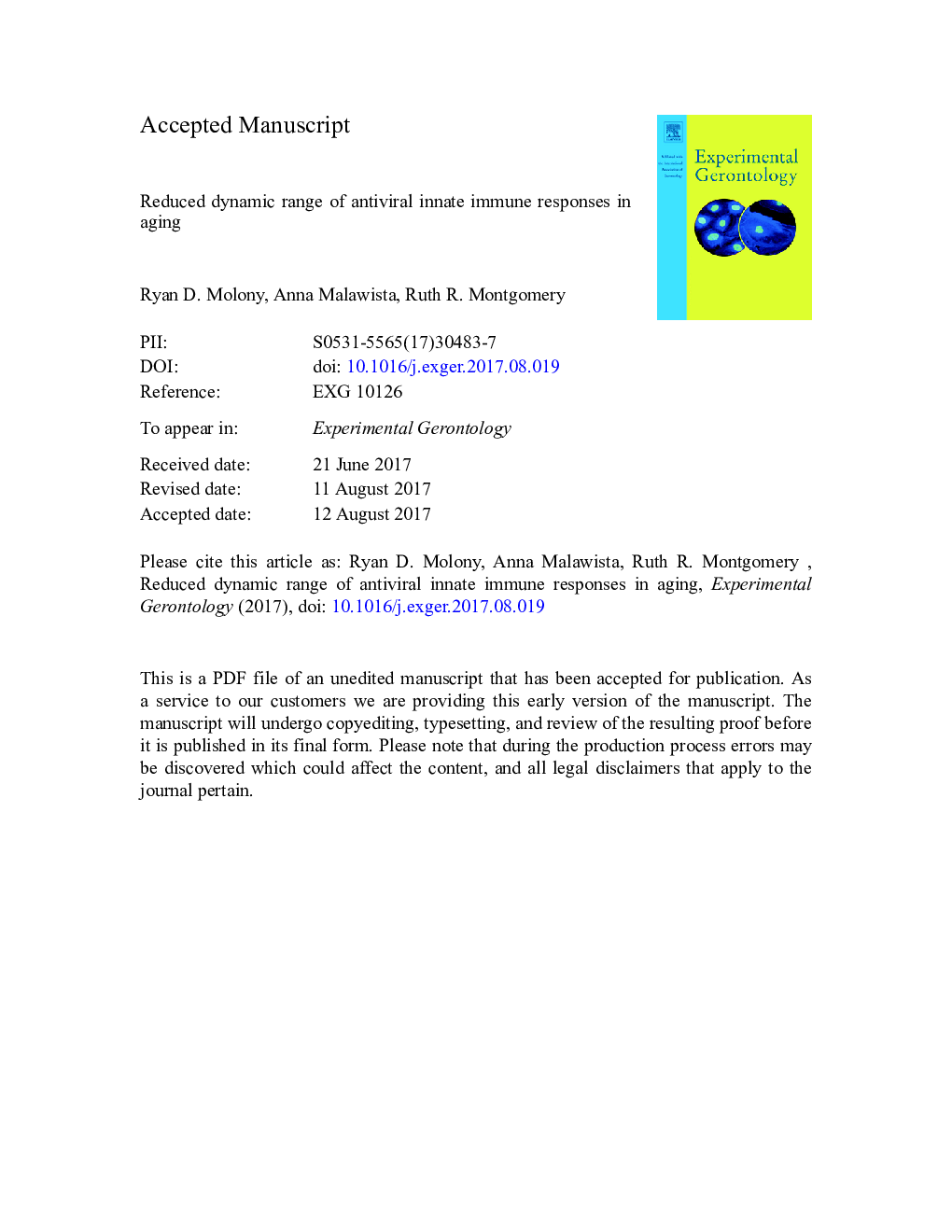| Article ID | Journal | Published Year | Pages | File Type |
|---|---|---|---|---|
| 8262279 | Experimental Gerontology | 2018 | 22 Pages |
Abstract
The worldwide population aged â¥Â 65 years is increasing and the average life span is expected to increase another 10 years by 2050. This extended lifespan is associated with a progressive decline in immune function and a paradoxical state of low-grade, chronic inflammation that may contribute to susceptibility to viral infection, and reduced responses to vaccination. Here we review the effects of aging on innate immune responses to viral pathogens including elements of recognition, signaling, and production of inflammatory mediators. We specifically focus on age-related changes in key pattern recognition receptor signaling pathways, converging on altered cytokine responses, including a notable impairment of antiviral interferon responses. We highlight an emergent change in innate immunity that arises during aging - the dampening of the dynamic range of responses to multiple sources of stimulation - which may underlie reduced efficiency of immune responses in aging.
Related Topics
Life Sciences
Biochemistry, Genetics and Molecular Biology
Ageing
Authors
Ryan D. Molony, Anna Malawista, Ruth R. Montgomery,
